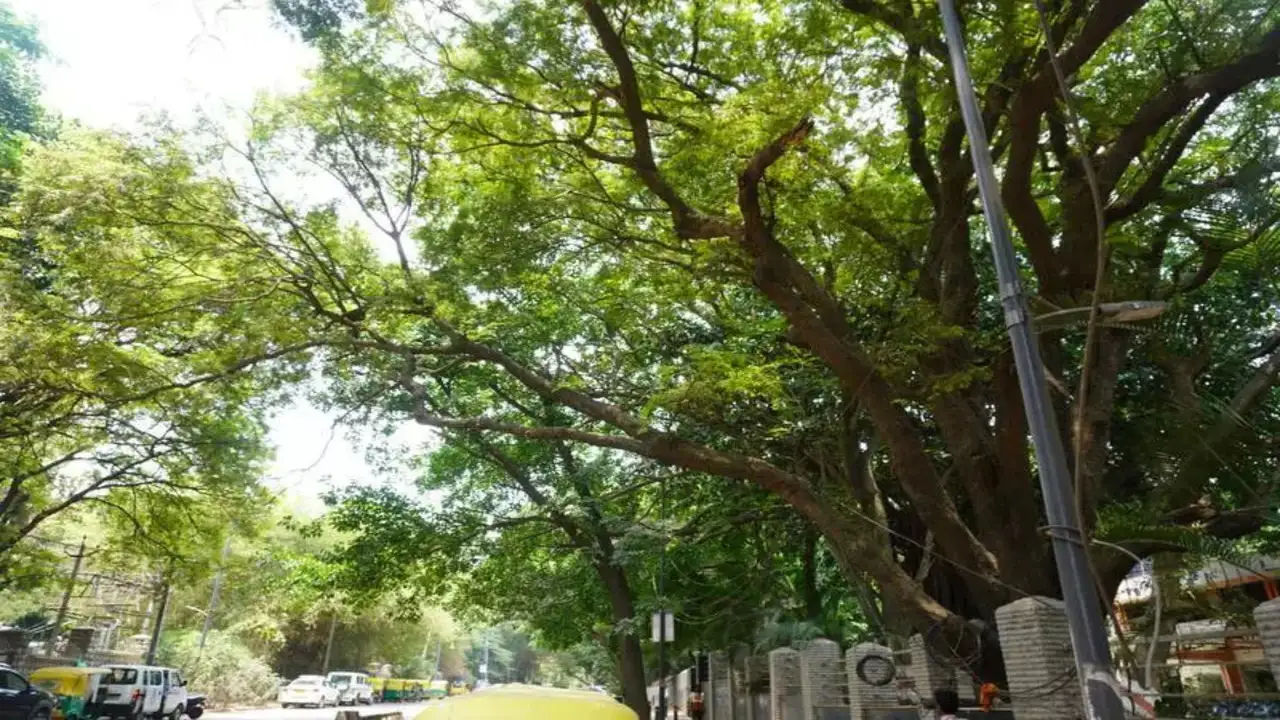A total of 368 trees some over a century old are facing imminent removal in the heart of Bengaluru as part of a commercial redevelopment plan by the Railway Land Development Authority (RLDA) at the Cantonment Railway Colony in Vasanth Nagar.
A statutory body under the Ministry of Railways, RLDA is seeking to repurpose an 8.61-acre plot into a mixed-use commercial and residential complex, with a reserve price pegged at ₹236 crore for a 60-year lease. According to an April 25 public notice by the Bruhat Bengaluru Mahanagara Palike (BBMP), the civic body has invited objections from citizens over the proposed tree felling. The affected trees are spread across the historic Cantonment premises, situated strategically between Cantonment Road and Thimmaiah Road. The BBMP Forest Wing has offered a brief ten-day window for citizens to lodge their objections via email or post—an opportunity that activists claim is too short for meaningful public participation, especially considering the ecological and heritage value of the trees at stake.
The proposed site, dotted with Peepal, Rubber, and Christmas trees, not only provides a much-needed green lung in one of Bengaluru’s most congested precincts but also holds legacy value. Many of these trees, according to environmental groups, predate the formation of modern urban layouts and are intrinsic to the city’s identity. The colony was also part of a green initiative in 2021, where more than 2,000 saplings of native species were planted. However, activists allege that most of these saplings have already been damaged or uprooted as pre-construction works have silently advanced in recent months.
The RLDA maintains that the project is intended to bolster the local economy, generate employment, and optimise land use by integrating transit-oriented development principles. But residents and civil society stakeholders argue that the real cost may be the irreversible loss of heritage greens. They are pushing for the integration of trees into the new design framework—a model successfully demonstrated in Bengaluru’s Kempegowda International Airport Terminal 2, where construction was adapted to preserve existing greenery. Local citizen groups have begun mobilising under the banner “Save Cantonment Heritage Trees,” urging residents to send formal objections to BBMP and the railway authority. They argue that retaining these trees would not only help Bengaluru meet its climate action commitments but also preserve an irreplaceable part of its cultural landscape. Environmental experts assert that urban forest cover, especially in high-density areas, is critical for carbon sequestration, temperature regulation, and air quality improvement—factors that align with the vision of a sustainable and zero-net-carbon city.
As public sentiment builds against the tree felling, the issue has evolved beyond the confines of administrative procedures. It has become a larger question of how Indian cities value their natural heritage amidst relentless urbanisation. Whether civic voices will influence the outcome remains uncertain, but the coming days are expected to witness growing resistance from a city determined to preserve its last remaining green enclaves.
Also Read : Tree Plantation Drive Launched to Green Panvel City


